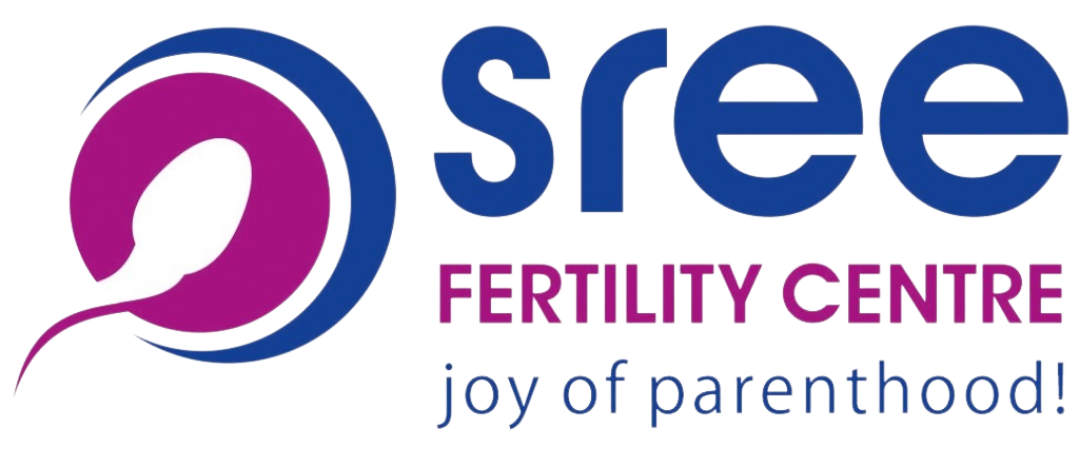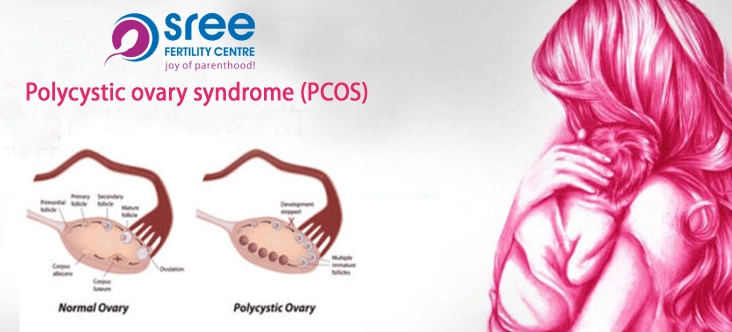What Is Polycystic Ovary Syndrome(PCOS) ?
Polycystic ovary syndrome (PCOS) is a complex condition that disturbs a woman’s hormone levels. It is a very common condition affecting one out of every five women of reproductive age.
Women affected with PCOS tend to produce unusual amounts of male hormones. This hormone imbalance becomes the cause of irregular menstrual periods and makes it difficult for them to get pregnant in future.
PCOS also causes abnormal hair growth and hairlessness. It is the cause of long-term health conditions like Gestational diabetes and high blood pressure.
Causes Of PCOS:
Experts believe that several factors including genetics and environmental conditions play a major role in causing PCOS.
The exact cause for it is unclear. However, it is considered a hormonal disorder.
All women produce Androgen (male hormone) but women with PCOS produce higher levels of Androgen. Androgen is a hormone that controls male traits such as baldness, facial hair growth, etc. Unusual amounts of Androgen release prevents the Ovaries from releasing an egg during their monthly menstrual cycle, leading to PCOS.
Insulin is a hormone made by the Pancreas which allows the body to convert sugar (glucose) into energy. In PCOS, body’s cells do not respond as usual to Insulin. This, at times, increases in the amounts of Insulin produced in the body. Most of the women with PCOS have Insulin resistance, particularly those with an unhealthy lifestyle. This condition compels the body to produce more amounts of Androgen. Simultaneously, leads to Type 2 Diabetes.
Deficient Progesterone release can lead to irregular periods causing PCOS.
Eight Common Symptoms And Signs To Look For In PCOS:
Over the past few decades, researchers identified PCOS as a heterogeneous condition.
One can see the symptoms and signs of PCOS soon after puberty or in late teenage or in early adulthood.
1. Irregular Periods:
In PCOS, irregular periods are the result of not being able to ovulate. Few women tend to develop cysts in their ovaries but, not necessarily.
2. Weight Gain:
Women with PCOS will have drastic weight gain and also difficulty in losing weight.
3. Acne:
Hormonal imbalance leads to severe acne problems on face, neck, chest and upper back.
4. Abnormal Hair Growth:
In PCOS, women develop hair on unusual parts such as face, abdomen, neck and toes. This strange hair growth condition is known as Hirsutism. It affects 70% of the women having PCOS.
5. Skin Darkening:
Women with PCOS see the darkening of skin especially on the neck, beneath the breasts and in the groin.
6. Hair Loss:
Women tend to lose hair from the scalp and also face male-pattern baldness.
7. Skin Tags:
Fat starts accumulating in the neck area and armpits.
8. Lack Of Sleep:
Insomnia or poor sleep is a common problem seen in the affected women. PCOS has been linked with a sleeping disorder called sleep apnea causing them to pause their breathing while in sleep.
How Lifestyle Changes Can Help To Treat PCOS?
It is not new that improving your lifestyle solves most of your problems. Making low-carbohydrate diet and exercise a part of your routine starts treating PCOS. Slight weight loss of 5-10 % also makes a difference as it helps improve the PCOS symptoms and regulate period. Losing weight helps improve heart conditions, lower Cholesterol and Insulin levels. Research says that 30-45 minutes of moderate-intensity workout helps women with PCOS reduce weight. Weight-loss with the help of exercise lowers Insulin levels and improves Ovulation.
What Are The Medical Treatments That Can Treat PCOS?
There is no particular cure for PCOS. However, you can control its symptoms. Medical treatments should be preferred only when lifestyle changes don’t work. Below are a few medical treatments that can help regulate the menstrual cycle and treat PCOS.
Birth Control Pills:
Estrogen and progestin intake on daily basis is considered as a standard treatment followed by women with PCOS. Regular birth control pills help in restoring hormonal balance and regulate ovulation. Older types of birth control pills have lower risks involved than the new ones.
Clomiphene:
Clomiphene is a drug which helps to induce ovulation. This drug is used to get PCOS women get pregnant. Usage of this drug can lead to a higher risk of multiple births.
Metformin:
Metformin is a common treatment prescribed for women with PCOS. However, this drug is not approved by the FDA for treating PCOS. This drug makes body sensitive to Insulin helping lower elevated glucose and Androgen levels. Women using this drug may lose little weight too.
Operation:
The surgical procedure is also an option to treat PCOS if the rest of the treatments don’t show any results. By the ovarian drilling procedure, tiny holes are made in the ovary with a thin heated needle or laser. This procedure is used to restore normal ovulation.
NOTE:
It is always wise to sit and talk with your Gynaecologist about the treatments, based on symptoms, plans and risks involved in it.
The Relation Between PCOS And Infertility:
PCOS is one of the most common causes of infertility among women. In the women with PCOS, there is a hormonal imbalance that interferes with the development and release of an egg during the time of ovulation. And, when you do not ovulate, you do not get pregnant.
Female infertility is a condition when a woman cannot conceive after several unsuccessful attempts over the course of one year. Like mentioned, PCOS is one of the common causes. In addition to PCOS, damage to fallopian tubes, uterus or complications with the cervix can also be a cause of infertility among women. Age also plays a major role in a woman’s fertility or infertility.

